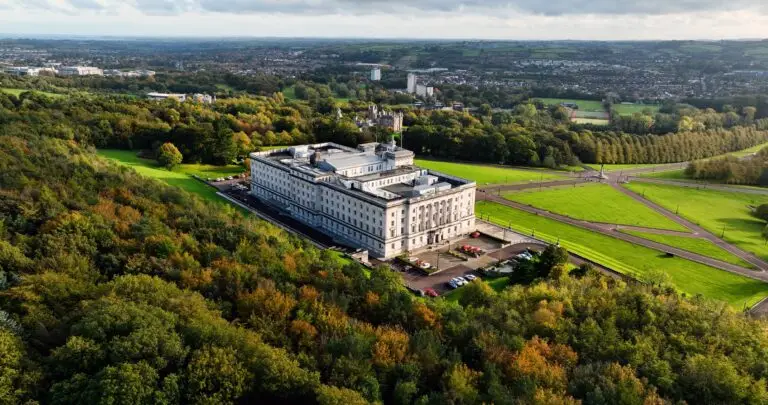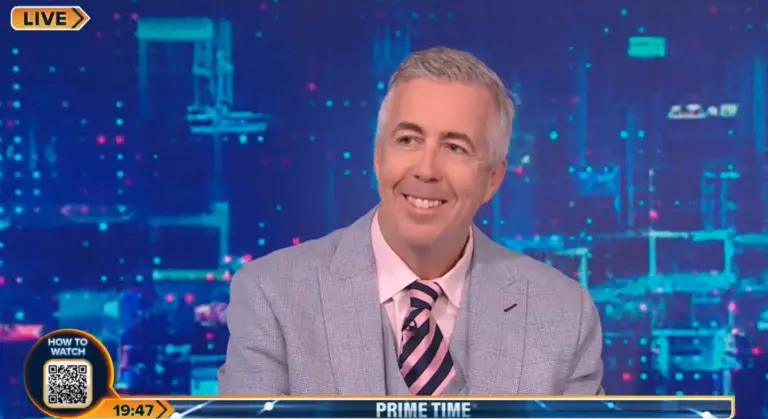If you have ever walked through the Parliament buildings in Northern Ireland, you will get a sense of the history of that small part of the United Kingdom. Stormont’s grand, Art Deco designs; its portraits of notable office holders; and its memorials to victims of The Troubles are visible features of an estate built 100 years ago. A lot has changed in those 100 years, and if you’ve walked through it at any point recently, you will have also noticed and absence of MLAs and a functioning Government.
Northern Ireland has been without Government for a large part of the last 7 years. After Sinn Féin collapsed the Assembly in 2017 – due to the Renewable Heat Incentive scandal and subsequent equality rights demands – it returned for a short time in 2020, only to be collapsed by the Democratic Unionist Party (DUP) in 2022 over the Conservative Party’s Brexit deal and the impact of the Irish Sea Border.
However last week, the DUP agreed a deal with the UK Government around changes to its Brexit policies, and on Saturday the Assembly elected a Speaker and Ministers for its Executive Offices. Facing down internal and external opponents, this is a huge step for the DUP, which has used its return to office to further decry those opponents, particularly those to its right, including the Traditional Unionist Voice Party (TUV).
In a moment of history, Michelle O’Neill MLA was elected as First Minister – the first Republican to hold that position in Northern Ireland’s 100 year story.
Under the D’Hondt system within this Mandatory Coalition, each party is given a choice of Departments to manage, with Michelle O’Neill and Emma Little-Pengelly as First Minister and Deputy First Minister respectively. Sinn Féin selected the Departments of Finance, the Economy and Infrastructure; DUP selected the Department for Communities, and for Education; Alliance selected the Department for Agriculture, Environment and Rural Affairs, as well as the Department for Justice; and the UUP selected the Health Department.
The SDLP were not entitled to any Ministerial positions, due to the results of the May 2022 Assembly Election, and will take up the position as the Official Opposition in the Assembly.
However, despite overcoming the political challenges of restoring the Assembly and Executive, the greatest challenge for those returning to Stormont is repairing the public services which have gone without Ministerial oversight for the best part of a decade. Even when in power, the parties have failed to reform key public services, leading the local health services to crumble; the Department for Infrastructure literally having to decide whether to repair roads or keep street lights on; and the education system facing significant pressures.
Public engagement and faith in the institutions of Northern Ireland is at rock bottom, and if the parties manage to keep the show on the road, the pressures in their in-trays will be colossal.
Northern Ireland desperately needs a Government. It needs stability. It needs a functioning Government, working together, with an agreed Programme for Government, delivering for its citizens. There will be discussions on a potential future referendum on a United Ireland; there will be challenges around culture, flags, parades and tradition; there will be optimism about the future for governance in a place that has been without for so long. But what we need much more than any of those things, is for politicians to get serious about how Northern Ireland’s public services are to be transformed, managed and delivered.
When I worked in the Northern Ireland Assembly (what feels like a lifetime ago), I recognised the history in the buildings, the portraits, the memorials. I recognise now the opportunity that the MLAs have in making a real difference to the lives of the people in Northern Ireland. I also recognise the challenges they face politically, financially and in policymaking.
Getting them in the door was one thing. Getting them to work together to deliver meaningful change for Northern Ireland is another.





